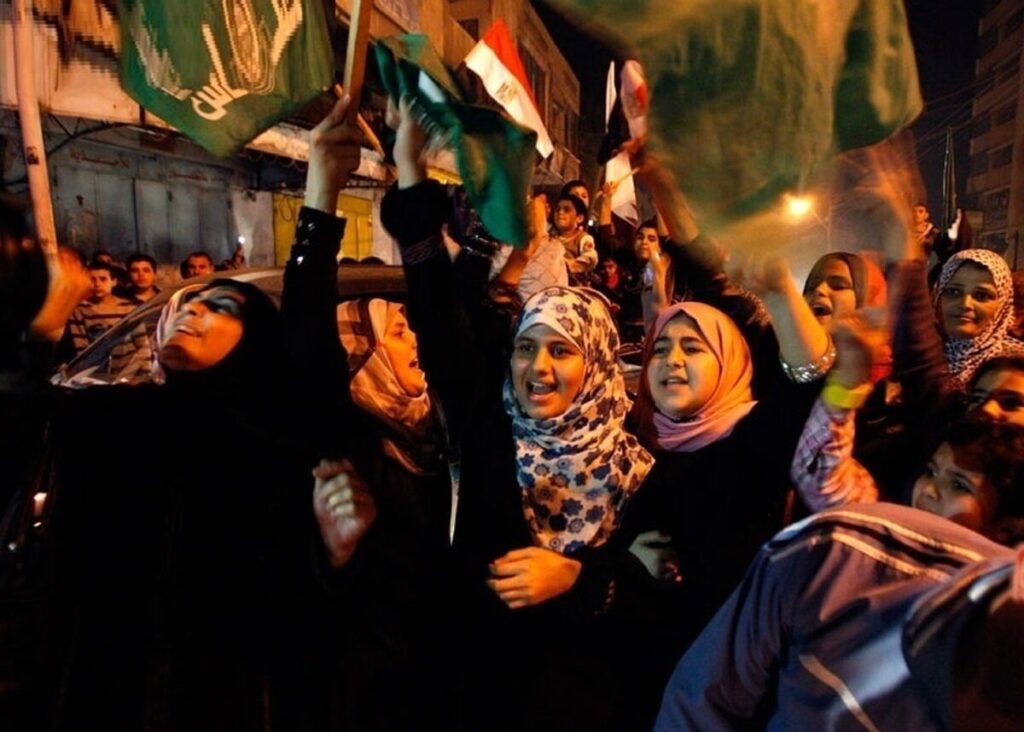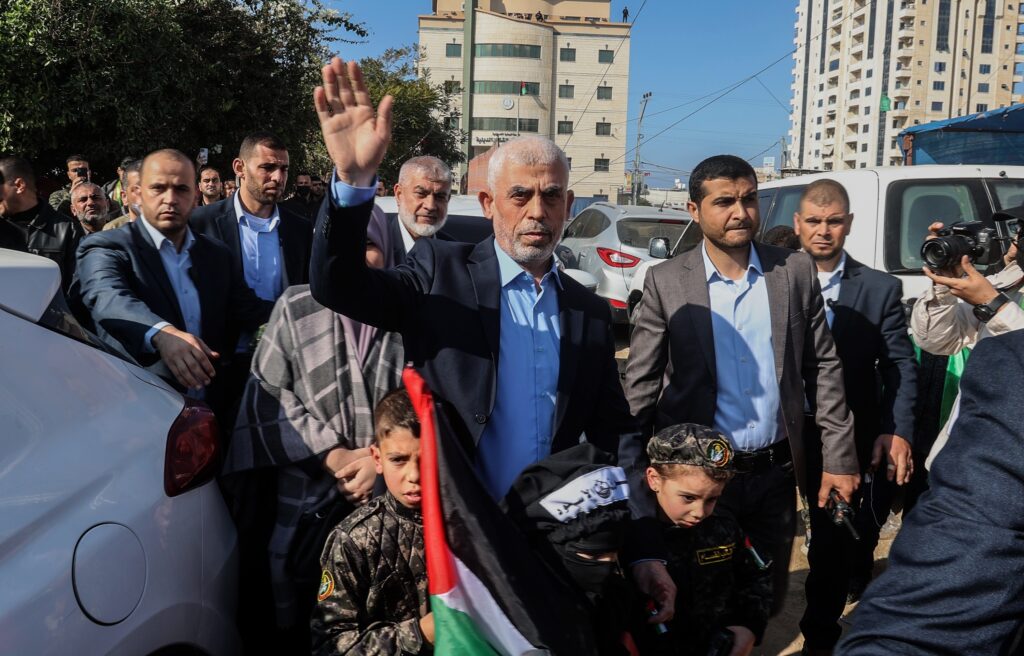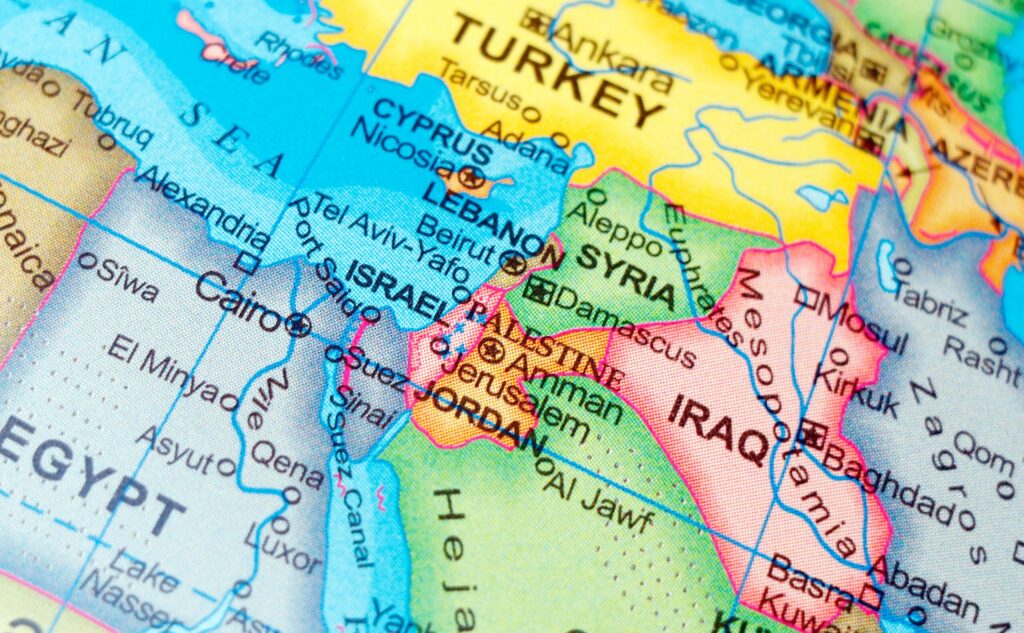UPDATES
New Terrorism Trends/ Palestinian Refugees
Nov 5, 2010 | AIJAC staff
Update from AIJAC
November 5, 2010
Number 11/10 #01
With additional terrorism attempts again in the news, first a bombing plot on Washington subways, and then an apparent attempt to bring down cargo planes with package bombs from Yemen, plus earlier reported efforts to stage Mumbai-style attacks in Europe, this Update concentrates on new trends in terrorism. It also features an interesting comment on the Palestinian refugee problem.
First up is Tel Aviv University terrorism expert Yoram Schweitzer, who looks at what recent attacks say about the continued viability of al-Qaeda as an organisation. He says that despite recent lack of success in committing attacks, al-Qaeda is clearly still a potent force, both in terms of its central command in Northern Pakistan and through the increasing use of regional affiliates, including the one in Yemen that apparently attempted the package bombing. He says that scepticism and complacency resulting from al-Qaeda’s recent lack of success may well result in an “expected surprise”, another major mass-casualty attack in the West. For all his insights, CLICK HERE. Another good piece by Schweitzer on the same topic is here.
Next, the American thinktank JINSA published an interesting report on the questions and anomalies relating to the package bombing attack from Yemen. These include why the bombs were addressed to Chicago synagogues, why the material initially escaped detection, whether the bombs were intended to blow up the planes or possibly reach the synagogues as a secondary target, and the role of the Yemeni women initially accused of mailing the packages and then released. The piece also details Saudi Arabia’s role in giving a tip off about the plot and the Saudi motivation. For the rest of the details, CLICK HERE. More analysis of this attack comes from security specialist Thomas Jocelyn, while both Jeffrey Goldberg and Lee Smith discuss the targeting of the synagogues.
Finally, Arab-Israeli journalist Khaled Abu Toameh offers a simple message to the Palestinian leadership, the Arab states, and the UN – it is time to stop deceiving Palestinian refugees that they will someday return to original villages in contemporary Israel. He details reasons why he believes all three continue to push this belief, even though it cannot and will not happen. He calls for a courageous leadership to tell Palestinian refugees the truth and immediately start resettling them and improving their lives. For Abu Toameh’s complete argument, CLICK HERE. Meanwhile, the UN wants to build a school for Palestinian refugees immediately next to a Hamas military base, despite Israeli pleas not to do so.
Readers may also be interested in:
- An excellent backgrounder on the terrorism situation in Yemen from the Institute for Counterterrorism in Herzliya, Israel.
- The inevitable accusations in the Middle East that the Jews, or else the US, are responsible for the latest terror plots.
- Steve Emerson on increasing activity on radical pro-terrorist US websites. One of them openly calls for the murder of British MPs.
- An al-Qaeda offshoot insists that all Christians anywhere are legitimate targets in the wake of last week’s bloody attack on a church in Iraq.
- Foreign policy analyst Max Boot provides a positive scorecard on the Obama Administration’s counter-terrorism efforts. By contrast, Israeli columnist Caroline Glick is scathing about the refusal of the Obama Administration and others to accurately describe the problem.
- Two Muslim-American analysts, Hayri Abaza and Soner Cagaptay, discuss the mistakes made on both the right and the left in differentiating Islam and Islamism.
- A Hamas minister has effectively admitted that, as Israel has claimed all along, the majority of Palestinian casualties during Operation Cast Lead last year were combatants, not civilians.
- Backers of the Gaza flotilla are caught cavorting with the purely terrorist group Islamic Jihad in Gaza, including posing with weapons. Barry Rubin has some comments.
- Bill Clinton reflects on the legacy of Yitzhak Rabin, assassinated 15 years ago. Another valuable reflection comes from David Makovsky of the Washington Institute for Near East Policy.
The Foiling of a Terrorist Attack on American Soil
Good News Bringing Evil Tidings
Schweitzer, Yoram
INSS Insight No. 219, November 3, 2010
The recent attempt to cross borders in an act of terrorism, with explosive devices originating in Yemen destined via cargo planes for the United States and neutralized before their activation, should come as no surprise. It is an example of al-Qaeda Central’s intensifying efforts in the last two years to wage terror attacks against the United States, Europe, and Arab allies taking part in the coalition against fundamentalist Islamic terrorism.
In the last two years, a number of al-Qaeda attempts to launch attacks on American soil from its command center in the tribal Pakistani Waziristan region using Muslims or converts trained and dispatched by the apparatus responsible for terrorist attacks abroad have been foiled. Some of these intended attacks were aimed at public transportation, especially the subway systems of large American cities, and were meant to cause many deaths and disrupt the routine of the American public. The purpose is to prove that almost a decade after 9/11, al-Qaeda is still a potent force. This seems to have been the purpose of the attack carried out in Times Square in Manhattan (May 2010) by an American Muslim of Pakistani origin, trained in a Taliban camp in Pakistan and dispatched on his mission. A technical error on his part while putting together the explosive device was the only glitch that prevented the event from becoming a large scale, mass-casualty disaster.
It appears that alongside activity directed by al-Qaeda Central, the organization and its global jihad affiliates are encouraging individuals and small cells to carry out their own terrorist acts. These smaller units have adopted a radical worldview and are self-motivated, using the “thousand sharp knives” strategy, which does not require a large cadre of operatives who have undergone intensive training and received the go-ahead from any command center or particular external training outside their host country. The purpose of this strategy is to carry out a large number of attacks, less showy and deadly than what al-Qaeda strives for, but whose psychological effect and cumulative economic damage are liable nonetheless to be both significant and debilitating.
In the last two years al-Qaeda Central has sustained a number of severe blows from American, NATO, and allied forces that severely compromised the organization’s leadership and especially the apparatus in charge of international terrorism. Nonetheless, the organization has again proved its ability to regroup. There were recent extensive reports about foiled attacks and arrests of cells members dispatched by surviving al-Qaeda commanders to various countries in Europe, among them Great Britain, Norway, and Denmark. The travel advisories issued in recent weeks by the United States to American citizens visiting Europe based on information about al-Qaeda intentions to dispatch cells of Western citizens trained at its camps in Pakistan and Afghanistan to carry out attacks in European cities are a clear indication that the threat originating with radical Islamic elements must still be reckoned with.
In addition, an important component of the web woven by al-Qaeda over the years as a built-in part of its operative strategy – namely cooperation with regional umbrella organizations that have willingly come under al-Qaeda sponsorship – is being manifested. These organizations, which identify with al-Qaeda’s view of the world, receive the right to bear the al-Qaeda brand name together with the name of the region where they operate in return for their role in global jihad; they may also receive material or even operational assistance. Still, these organizations maintain a great deal of command and operational autonomy. Among the most prominent of al-Qaeda’s close affiliates are organizations such as al-Qaeda in Hijaz, apparently responsible for the attempted attack against the cargo planes, consisting of a merger between the Saudi and the Yemeni branches of al-Qaeda; al-Qaeda in the Islamic Maghreb, operating as a confederation of jihadist salafist organizations from Algeria, Morocco, and African states such as Niger and Mauritania; the Somali al-Shabab, whose leadership includes several senior operatives sent from al-Qaeda’s main command center to assist the activity directed against the Ethiopian foreign forces and the presence of Westerners in the country; and al-Qaeda in Iraq, which despite the setbacks if has suffered in recent years is proving anew its ability to carry out multi-victim terrorist attacks in the country. This cooperation with federations of terrorist organizations in different parts of the world, with some of them acting outside their own countries, enables al-Qaeda to compensate for its difficulties in the central arena of fighting – Pakistan and Afghanistan – where it finds itself under a great deal of pressure, and take advantage of what it invested in training terrorists over the years. Through its trained operatives, it can continue to attack its enemies and advance its global militaristic agenda even without direct involvement in this activity.
Today it is clear that rumors about the demise of al-Qaeda to the effect that it was merely an amorphous, symbolic icon and the remaining battle against radical Islamic terrorism was primarily against a leaderless jihad were quite premature. Likewise, the claims that Bin Laden was no longer involved in leading the struggle of his organization and that perhaps he was not even alive any longer seem baseless. The fact that in the first ten months of 2010 Bin Laden recorded his own voice on six audio cassettes – unlike previous years when he used to appear also in his rare videotapes, suggesting perhaps his caution lest he reveal details regarding his whereabouts and/or his failing health – indicate his vigilance and personal involvement in the struggle his organization is engaged in. Al-Qaeda’s organizational culture, based on Islamic edicts, obligates it to issue warnings to its enemies about impending attacks against them unless they repent of their evil ways. The threatening messages sent by Bin Laden in the tapes are liable also to be indications of the organization’s intentions and ought to be taken seriously.
Consequently, it seems that the skeptical comments about the American travel advisories and the complacency of the West – perhaps because it has been quite some time since al-Qaeda’s last dramatic mass-casualty attack in the style of the first half of this decade – are liable to result again in an “expected surprise.” If the security efforts to foil an attack fail and a mass-casualty attack occurs, it will prove once again that the campaign against radical Islamic terrorism of the al-Qaeda & Company school of thought is still far from over and will undoubtedly continue to be one of the major preoccupations of security and intelligence services in many countries long after the tenth anniversary of 9/11.
Back to Top
————————————————————————
Bombs Out of Yemen; Heroes Out of Saudi Arabia?
JINSA Report #: 1,035, November 1, 2010
This is a story that benefitted from the weekend; much of Friday’s rush to judgment was wrong. First reports had the printer cartridge as a fake causing several experts to claim it was a “dry run” for later bombs; the addressees were synagogues and Jewish organizations in Chicago, which some experts said might have something to do with President Obama, although what is unclear; and the suspect was a 22-year-old female Yemeni engineering student.
Over the weekend we understood that the packages were bombs so sophisticated that the explosives in the altered cartridge escaped detection the first time experts dismantled it. The detonations were more likely to have occurred in the air than through the delivery of the packages, destroying the planes, not blowing up in Jewish institutions. And the woman was released after the shipping agent who received the packages in Yemen said she was not the person who signed the shipping documents.
What remains is strange enough.
Addressing the bombs to Jewish organizations is odd – if the plane was going to explode in mid-air, after the blast how would anyone have known that the addressee was a synagogue? Maybe al Qaeda operatives are sensitive to the idea that Americans target whatever appears to be Muslim for extra attention, so they thought a package that said “Jews” would be less subject to close inspection. Of course, American and European authorities are fully aware that Jewish organizations are often targets – but maybe terrorists can be very clever but not very sophisticated.
On the other hand, blowing up cargo planes makes perfect sense for al Qaeda – the last time they tried an airplane bomb, an intrepid passenger stopped Abdul Mutallab, the “underwear bomber,” before the bomb could detonate. Observant Americans similarly stymied the “Times Square bomber.” Cargo on a plane would allow no heroes.
But there was a hero – and odd one at first blush. It was Saudi intelligence that tipped British intelligence that the UPS plane headed for the Midlands in the UK had to be stopped. Although Saudi Arabia supplied 11 of the 19 September 11th bombers, the Saudis have come to understand that al Qaeda’s primary target is not, in fact, the United States or France, but Saudi Arabia itself – which al Qaeda sees as a “slave” of the West. This has prompted the Saudis to invest heavily in surveillance and monitoring not only of the Kingdom, but of al Qaeda elsewhere, including Yemen. Last year, the head of the Saudi counterterrorism program was nearly assassinated when a suicide bomber from Yemen posing as a reformed jihadist detonated a bomb hidden inside his body.
There’s nothing like a really, really close call to focus one’s attention, Saudi or American.
The New York Times reported this weekend, “When the Saudi Interior Ministry released its list of the top 85 wanted militants last year, all of them were said to be outside the kingdom, including some in Yemen. Saudi Arabia’s problem, in other words, has become the world’s problem.”
You don’t say. It is, apparently, also our problem. Stay tuned.
Back to Top
————————————————————————
The Palestinian Refugees: Why Is Everyone Lying To Them?
By Khaled Abu Toameh
Hudson Institute, New York
October 19th, 2010
Palestinian Authority leaders are now saying that they will never recognize Israel as a Jewish state because that would mean that they would have to give up the “right of return” for millions of Palestinians to their original homes inside Israel.
These leaders are actually continuing to deceive the refugees into believing that one day they will be permitted to move into Israel.
The Palestinian Authority, like the rest of the Arab governments, has been lying to the refugees for decades, telling them that one day their dream of returning to their villages and towns, many of which no longer exist, would be fulfilled.
Meanwhile, the refugees are continuing to live in harsh conditions in their UNRWA-administered camps in the West Bank, Gaza Strip, Jordan, Syria and Lebanon.
No Arab or Palestinian leader has ever dared to confront the refugees with the truth, namely that they are not going to move into Israel. On the contrary, Palestinian and Arab leaders continue to tell these people that they will go back to their former villages and towns.
Arab and Palestinian governments are lying to the refugees because they want to avoid any responsibility toward their plight. The Arab governments hosting the refugees have done almost nothing to improve the living conditions of the refugees.
On the contrary, Palestinian refugees living in Syria, Lebanon and Jordan have long been subjected the victims of racism and other repressive and unjust measures and laws that deprive them even of basic rights. Governments such as Jordan receive a payment for each refugee, turning the refugees into nothing more than property, like stocks on Wall Street.
Since its establishment in 1994, the Palestinian Authority has also done very little to help the refugees. In the West Bank, most of the international aid is being invested in major cities such as Ramallah, Nablus, Bethlehem and Jenin, as well as scores of villages.
UNRWA is also not offering a solution to the refugees. Instead, the UN agency is perpetuating the problem by creating new generations of refugees. UNRWA is in fact encouraging the refugees to stay where they are. For UNRWA, refugees are a gigantic UN jobs program, providing over 30,000 of them, costing over $1 billion USD a-year, or, according to separate sources, a third of all other UN regugee services combined.
The case of the Palestinian refugees is one of the most important issues in the Israeli-Arab conflict. It needs to be solved for once and for all — and immediately. The refugees have the legitimate and moral right to continue dreaming about their original villages and towns. But the Arab and Palestinian governments do not have the right to continue lying to these people.
The issue of the refugees can easily be solved if the entire international community, with the help of the Arab world, gets together to find a solution. Israel alone will never be able to solve the problem.
The refugees should be offered financial compensation or resettlement in Arab and other countries. Those who wish to move to a Palestinian state that is established alongside Israel in the future should not be denied that right. Arab countries should be urged to absorb Palestinian refugees.
Western countries should also participate by taking some of the refugees and offering them a new life. Why not establish an international fund that would offer financial compensation to those who lost their homes and lands? And let us not forget that there are also hundreds of thousands of Jewish “refugees” who lost their properties in Arab countries.
The world needs to tell the Palestinian refugees that while they are entitled to many rights, they must forget about returning to Jaffa, Haifa and other places inside Israel.
The issue of the Palestinian refugees can be solved only when a courageous Arab or Palestinian leader confronts them with the truth. As long as the refugees are being fed with false hopes, there can be no solution.
Tags: Palestinians











